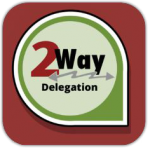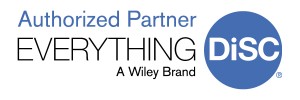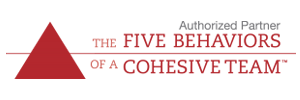Course Description
Managers often view performance management as being primarily the end-of-year performance review. In truth, performance management is an ongoing, year-round function. The annual review is merely the culmination of the performance conversations that have taken place throughout the year. In this course, managers learn how to collaboratively develop performance goals, provide feedback and coaching toward those goals, and review performance results. These three activities make up the performance management cycle.
Managers begin this course by exploring the performance management process for their organization. They then learn and utilize a three-phase process to effectively manage performance. In the first phase, participants examine the performance competencies of their organization, which they will eventually use to assess employee strengths and development opportunities. They then learn how to apply the SMART goal-setting formula using their actual competencies, which will help to clarify expectations for the employee.
In the second phase of the process, participants learn techniques to observe performance and to provide ongoing coaching and feedback. They watch a demonstration and learn the critical differences between observation and judgment. They use this concept to practice, providing both positive and constructive feedback. Participants discuss the need for collecting data all year long, and they learn systematic methods for doing so. To conclude this segment of the class, participants practice with a tool designed to help them communicate feedback on a continual basis.
In phase three of the process, participants practice with their actual rating system and learn to write clear, objective ratings for their employees. They then discuss difficult situations and practice their new skills by preparing and conducting a mock performance review.
Objectives
After completing this course, participants will be able to:
- Discuss the partnering for performance process.
- Assess strengths and development opportunities for managing performance.
- Apply the SMART (Specific, Measurable, Achievable, Relevant, and Time bound) objective-setting formula.
- Help team members prepare for objective-setting discussions.
- Apply follow-up techniques that ensure commitments, objectives, and standards are being met.
- Handle tough performance discussions.
- Apply collaborative techniques to create a two-way dialogue.
- Discuss development versus judgment.
- Apply a structured approach to discussing performance.
Duration
This course has an 8-hour agenda.
Class Size
This course is designed for up to 20 participants.
Course Outline
Below is the course outline with objectives and timing for an 8-hour agenda.
| Section | Timing in Minutes | (Total Timing in Minutes/ Hours) |
| Welcome and Introduction | 15 | 15 |
| Objectives and Agenda | 5 | 20 |
| Activity: Partnering for Performance | 30 total | 50 |
| ?Performance Management Assessment | 15 | 1 hr, 5 min |
| Phase One: Objectives | 5 | 1 hr, 10 min |
| Set Performance Objectives | 10 | 1 hr, 20 min |
| Develop Objectives Collaboratively | 5 | 1 hr, 25 min |
| Set Development Objectives | 5 | 1 hr, 30 min |
| What Am I Supposed to Do With That? | 15 | 1 hr, 45 min |
| Break | 10 | 1 hr, 55 min |
| Develop SMART Performance Objectives | 30 | 2 hr, 25 min |
| Discuss Alignment | 5 | 2 hr, 30 min |
| Break | 10 | 2 hr, 40 min |
| Phase Two: Progress | 5 | 2 hr, 45 min |
| ?What Am I Observing? | 30 | 3 hr, 15 min |
| ?Provide Ongoing Feedback | 20 | 3 hr, 35 min |
| Provide Coaching | 5 | 3 hr, 40 min |
| Review of Morning Material and Information | 5 | 3 hr, 45 min |
| Lunch | 45 | 4 hr, 30 min |
| Handling Tough Performance Conversations and Activity | 30 | 5 hr |
| Discuss Performance All Year Long | 5 | 5 hr 5 min |
| Schedule an Interim Review | 5 | 5 hr, 10 min |
| ?Communicate Performance Feedback All Year Long | 15 | 5 hr, 25 min |
| Phase Three: Achievement | 5 | 5 hr, 30 min |
| ?What’s the Big Deal? | 15 | 5 hr, 45 min |
| Prepare for the Performance Review | 5 | 5 hr, 50 min |
| ?Let Me Explain It to You | 15 | 6 hr, 5 min |
| Schedule a Team Member Self-Review Meeting | 5 | 6 hr, 10 min |
| Gather and Analyze Performance Data | 10 | 6 hr, 20 min |
| Break | 10 | 6 hr, 30 min |
| Rate the Performance § Rating Errors § ?Avoid Common Rating Errors | 20 | 6 hr, 50 min |
| Write the Comments § Rating Scale Description § ?Practice Writing Comments | 30 | 7 hr, 20 min |
| Identify the Key Performance Discussion Points | 5 | 7 hr, 25 min |
| ?Development versus Judgment | 10 | 7 hr, 35 min |
| Break | 10 | 7 hr, 45 min |
| Conduct the Annual Performance Review § Create a safe environment § Start the discussion with a positive intent § The meeting agenda § Discuss rating and comments § Encourage two-way discussion § Summarize strengths and areas for development | 15 | 8 hr |
| ?Practice Conducting a Collaborative Performance Review | 45 | 8 hr, 45 min |
| Action Planning and Summary | 15 | 9 hr |


